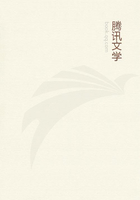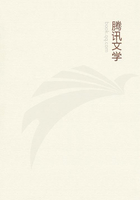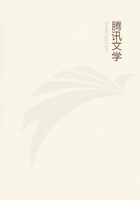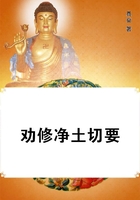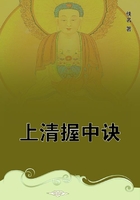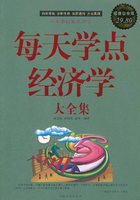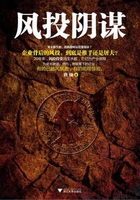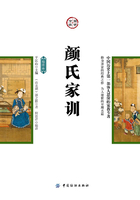We may be told that we have distinguished between simple and composite bodies, even ranking them as opposites.But our distinction, we reply, was between material and organic bodies and raised no question of the composite.In fact, there exists no means of opposing the composite to the simple; it is necessary to determine the simples in the first stage of division, and then, combining them on the basis of a distinct underlying principle, to differentiate the composites in virtue of their places and shapes, distinguishing for example the heavenly from the earthly.
These observations will suffice for the Being [Substance], or rather the Becoming, which obtains in the Sensible realm.
11.Passing to Quantity and the quantum, we have to consider the view which identifies them with number and magnitude on the ground that everything quantitative is numbered among Sensible things or rated by the extension of its substrate: we are here, of course, discussing not Quantity in isolation, but that which causes a piece of wood to be three yards long and gives the five in "five horses,"Now we have often maintained that number and magnitude are to be regarded as the only true quantities, and that Space and Time have no right to be conceived as quantitative: Time as the measure of Motion should be assigned to Relation, while Space, being that which circumscribes Body, is also a relative and falls under the same category; though continuous, it is, like Motion, not included in Quantity.
On the other hand, why do we not find in the category of Quantity "great" and "small"? It is some kind of Quantity which gives greatness to the great; greatness is not a relative, though greater and smaller are relatives, since these, like doubleness, imply an external correlative.
What is it, then, which makes a mountain small and a grain of millet large? Surely, in the first place, "small" is equivalent to "smaller." It is admitted that the term is applied only to things of the same kind, and from this admission we may infer that the mountain is "smaller" rather than "small," and that the grain of millet is not large in any absolute sense but large for a grain of millet.In other words, since the comparison is between things of the same kind, the natural predicate would be a comparative.
Again, why is not beauty classed as a relative? Beauty, unlike greatness, we regard as absolute and as a quality; "more beautiful" is the relative.Yet even the term "beautiful" may be attached to something which in a given relation may appear ugly: the beauty of man, for example, is ugliness when compared with that of the gods;"the most beautiful of monkeys," we may quote, "is ugly in comparison with any other type." Nonetheless, a thing is beautiful in itself; as related to something else it is either more or less beautiful.
Similarly, an object is great in itself, and its greatness is due, not to any external, but to its own participation in the Absolute Great.
Are we actually to eliminate the beautiful on the pretext that there is a more beautiful? No more then must we eliminate the great because of the greater: the greater can obviously have no existence whatever apart from the great, just as the more beautiful can have no existence without the beautiful.
12.It follows that we must allow contrariety to Quantity:
whenever we speak of great and small, our notions acknowledge this contrariety by evolving opposite images, as also when we refer to many and few; indeed, "few" and "many" call for similar treatment to "small" and "great.""Many," predicated of the inhabitants of a house, does duty for "more": "few" people are said to be in the theatre instead of "less.""Many," again, necessarily involves a large numerical plurality.
This plurality can scarcely be a relative; it is simply an expansion of number, its contrary being a contraction.
The same applies to the continuous [magnitude], the notion of which entails prolongation to a distant point.
Quantity, then, appears whenever there is a progression from the unit or the point: if either progression comes to a rapid halt, we have respectively "few" and "small"; if it goes forward and does not quickly cease, "many" and "great."What, we may be asked, is the limit of this progression? What, we retort, is the limit of beauty, or of heat? Whatever limit you impose, there is always a "hotter"; yet "hotter" is accounted a relative, "hot" a pure quality.
In sum, just as there is a Reason-Principle of Beauty, so there must be a Reason-Principle of greatness, participation in which makes a thing great, as the Principle of beauty makes it beautiful.
To judge from these instances, there is contrariety in Quantity.
Place we may neglect as not strictly coming under the category of Quantity; if it were admitted, "above" could only be a contrary if there were something in the universe which was "below": as referring to the partial, the terms "above" and "below" are used in a purely relative sense, and must go with "right" and "left" into the category of Relation.
Syllable and discourse are only indirectly quantities or substrates of Quantity; it is voice that is quantitative: but voice is a kind of Motion; it must accordingly in any case [quantity or no quantity] be referred to Motion, as must activity also.
13.It has been remarked that the continuous is effectually distinguished from the discrete by their possessing the one a common, the other a separate, limit.
The same principle gives rise to the numerical distinction between odd and even; and it holds good that if there are differentiae found in both contraries, they are either to be abandoned to the objects numbered, or else to be considered as differentiae of the abstract numbers, and not of the numbers manifested in the sensible objects.If the numbers are logically separable from the objects, that is no reason why we should not think of them as sharing the same differentiae.

